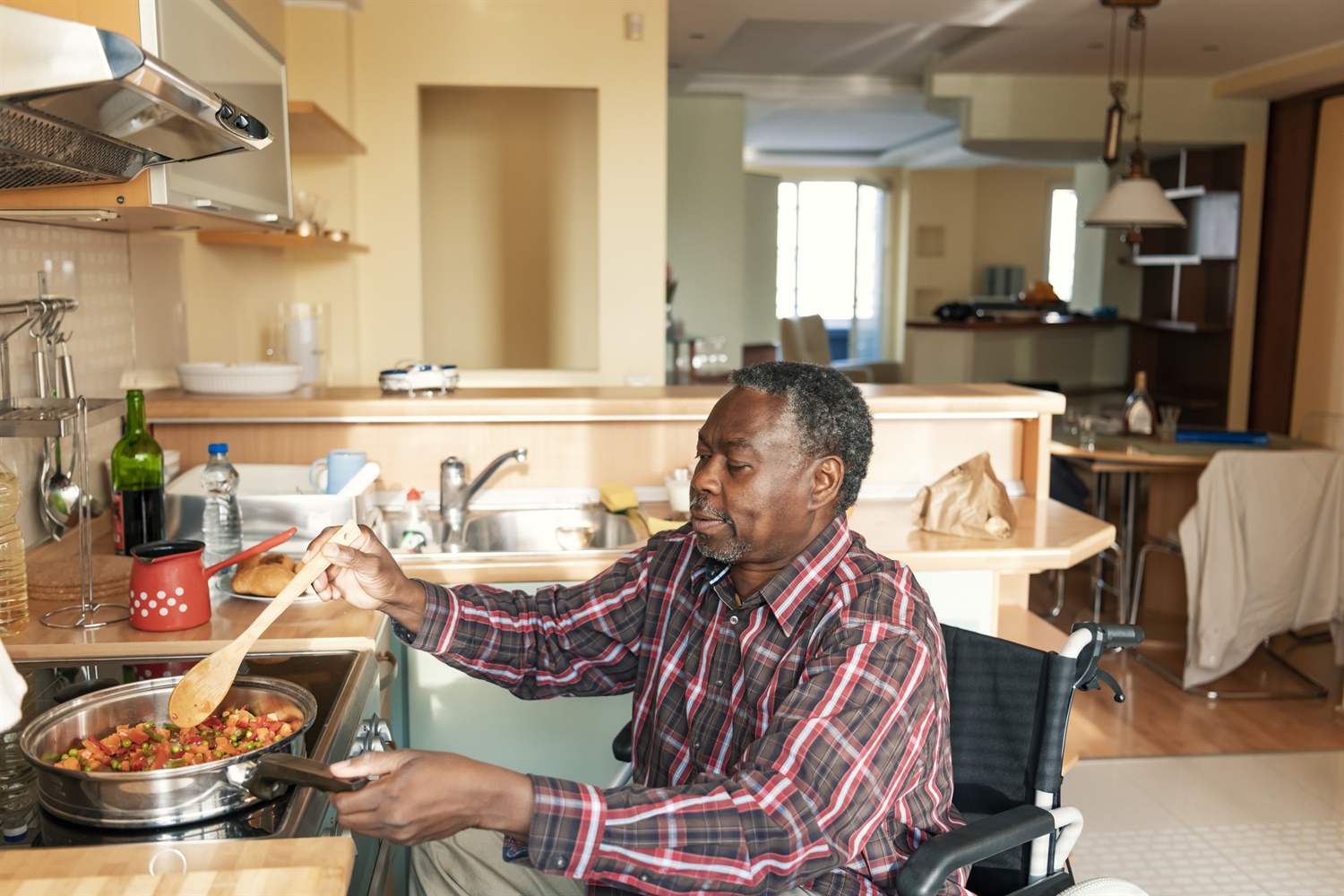18.06.20
‘People shape technology, not the other way around’
Words provided by Home Group, editorially reviewed by National Health Executive
Assistive technology in healthcare isn’t necessarily something new, but sometimes innovation in this area can seem life-changing in theory, yet not live up to the hype for those putting it into practice.
Many people now enjoy the novelties of having an Amazon Alexa or Google Home in their house or get a thrill when they turn their heating on from their phone having never had to get out of bed.
There are obvious benefits that come with these innovations too, such as window sensors that detect if they’re opened and automatically turn the radiators off. As well as helping us to live greener lives, they can also benefit us financially by lowering our bills.
Smart products like these can be extensively tested before being launched, but what about technology that’s designed for some of the most vulnerable people in society? How can we be sure it will work?
There’s no doubt that effective tech can dramatically improve the quality of life for people with care needs by enabling them to live more independently. It can also support health professionals by allowing them to spend more quality time with those they care for.
One housing and care provider has sought to ensure it implements the right technology by commissioning a live research project to determine its effectiveness in a real-life setting.
Home Group, one of the UK’s largest housing associations, has invited a research assistant to live and work in one of their newly built homes to test new innovations and ideas, with the project focusing on three distinct groups; people with learning disabilities and/or autism, older people and the elderly, and people with mental health needs.
Undertaken in partnership with Northumbria University, the project has also seen extensive collaboration with Home Group customers, people in the wider community and a range of organisations, including local authorities and Amazon Web Services.

One housing and care provider, Home Group, has sought to ensure it implements the right technology by commissioning a live research project to determine its effectiveness in a real-life setting
Glenda Cook, Professor of Nursing at Northumbria University, said: “Incredible social impact can be achieved through use of digital technologies that are becoming widely available to everyone and can support independence and improve quality of life.
“This research is a great opportunity to explore what smart solutions customers want to use, and for the research team to develop applications and processes to enable them to do this. The feedback we have received so far from users and service providers has already indicated the real value of this approach and we hope to continue to build on what has been achieved.”
With the first sprint of research into learning disabilities and autism complete the project has already looked at a range of solutions, such as using smart sockets to collect motion, temperature and power usage data. This can be viewed by family and carers to indicate the person is warm, drinking, eating and active. It also sends alerts when unusual behaviour, such as inactivity, is detected.
Smart watches have also been used to track steps, calories and sleep. This is important for people with learning disabilities as it indicates whether a person was awake during the night or had a light or restful sleep. Health care professionals could then access the data prior to a home visit, eliminating the need to ask these questions.
The project is also looking at monitors that detect falls – and even predict when falls may occur – as well as technology that monitors the temperature in an elderly persons’ home and sends alerts via text if temperatures rise or fall outside of pre-set limits. There’s also tech which monitors and records vitals, as well supports medication management.
What the team are keen to explore is existing technologies that can be adapted. Small changes can prove more cost effective and often make a tangible difference. For example, some people can have trouble articulating prompts such as ‘Hey Google’, so they introduced a personalised system that can be shaped to each individual.

Many people now enjoy the novelties of having an Amazon Alexa or Google Home in their house or get a thrill when they turn their heating on from their phone, but who tests technology that’s designed for some of the most vulnerable people in society to ensure it works?
Lindsay Courtney, Strategic Lead for Service Design and Practice at Home Group, added: “Being able to use a real house as part of this research project means we can test concepts that usually remain theoretical and I’m really excited to see the findings as they come in.
“Having a researcher living in the house day-to-day provides a real depth of insight into how some of the most vulnerable people in our society can be supported by both bespoke and off-the-shelf technology.
“I’m keen that technology doesn’t shape an individual’s behaviour, but an individual’s needs shape technology. These advances could enable people to live more independently and help health care workers spend more quality time with patients by automating basic health checks.”
With the second sprint of research already underway, there’s been significant interest from a range of health care providers and local authorities. Home Group are also working with the Mental Health Network of the NHS Confederation and are looking for individuals to join their community of practice - concentrating on supporting people with mental health issues.
As the research continues, what’s already become apparent is the need for individuals themselves to inform the next assistive technology innovations. What works now may not be right for younger people who have grown up surrounded by far more sophisticated tools than those before them.
What is clear from both Glenda and Lindsay is the importance of speaking to people with lived experience - individuals, families and healthcare professionals – rather than taking direction from the technology companies themselves.
By putting people first assistive technology really can live up to its hype and begin to transform lives.
Once completed, the research by Home Group and Northumbria University will be published and made available to the health, social care and housing sectors. For more information and to get involved with the project, contact Lindsay Courtney by emailing: [email protected]